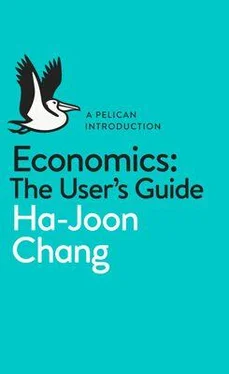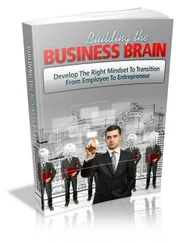Bruce Hood - The Domesticated Brain - A Pelican Introduction (Pelican Books)
Здесь есть возможность читать онлайн «Bruce Hood - The Domesticated Brain - A Pelican Introduction (Pelican Books)» весь текст электронной книги совершенно бесплатно (целиком полную версию без сокращений). В некоторых случаях можно слушать аудио, скачать через торрент в формате fb2 и присутствует краткое содержание. Год выпуска: 2014, ISBN: 2014, Издательство: Penguin Books Ltd, Жанр: Старинная литература, на английском языке. Описание произведения, (предисловие) а так же отзывы посетителей доступны на портале библиотеки ЛибКат.
- Название:The Domesticated Brain: A Pelican Introduction (Pelican Books)
- Автор:
- Издательство:Penguin Books Ltd
- Жанр:
- Год:2014
- ISBN:9780141974873
- Рейтинг книги:4 / 5. Голосов: 1
-
Избранное:Добавить в избранное
- Отзывы:
-
Ваша оценка:
- 80
- 1
- 2
- 3
- 4
- 5
The Domesticated Brain: A Pelican Introduction (Pelican Books): краткое содержание, описание и аннотация
Предлагаем к чтению аннотацию, описание, краткое содержание или предисловие (зависит от того, что написал сам автор книги «The Domesticated Brain: A Pelican Introduction (Pelican Books)»). Если вы не нашли необходимую информацию о книге — напишите в комментариях, мы постараемся отыскать её.
The Domesticated Brain: A Pelican Introduction (Pelican Books) — читать онлайн бесплатно полную книгу (весь текст) целиком
Ниже представлен текст книги, разбитый по страницам. Система сохранения места последней прочитанной страницы, позволяет с удобством читать онлайн бесплатно книгу «The Domesticated Brain: A Pelican Introduction (Pelican Books)», без необходимости каждый раз заново искать на чём Вы остановились. Поставьте закладку, и сможете в любой момент перейти на страницу, на которой закончили чтение.
Интервал:
Закладка:
The reliance on feelings of disgust has been referred to as the wisdom of repugnance by those revolted by certain acts who feel justified for condemning others’ behaviours because it makes them feel sick. 68The problem with moral repugnance is that what people find disgusting depends on who you ask. As the evolutionary psychologist Jesse Bering points out in his recent exposé of human sexuality, Perv , there is considerable variation in so-called typical sexual behaviour. 69The disgust factor is a poor barometer of what and why some sex acts are considered wrong. Consider the following scenario as a way of examining your own moral attitudes and repugnance. Imagine that a brother and sister who are both over the age of consent are on holiday and decide one night to have sexual intercourse. Both willingly agree to participate, take adequate precautions and decide not to tell anyone. Even though no one was hurt in any psychological or physical way and both enjoyed the experience, do you think that they acted immorally? Most people who consider this scenario are disgusted, but when asked to explain why, they are unable to provide a good reason as to why it is so wrong. As the psychologist Jonathan Haidt 70puts it, they are ‘morally dumbfounded’.
Haidt believes that some moral values are not learned but rather are based on intuitions about what is right or wrong – maybe the same good and bad reasoning that has been observed in infants. We have a gut reaction that is emotional, often in the absence of having any good reason to explain our feelings. In what has become a very famous thought experiment known as the trolley problem , adults seem to reach different moral judgements based on gut reactions. 71In this problem we are told that there are five engineers working on a railway track as a runaway carriage (trolley) approaches them. If the trolley is not stopped, then all five will die in the collision. However, there is a junction with a switch that will divert the trolley on to another branch of the track where there is only one engineer working. What should they do? Do nothing and let the trolley plough into five workers, or intervene to push the switch to divert the trolley on to the track so it ends up killing only one worker. Most people think that the right thing to do is to divert the train. In fact, not only is it the right thing to do, it would be morally wrong not to flip the switch. We may feel for the individual but we know that it is right to save the group.
Now consider a different version of the trolley scenario. In the footbridge problem , you are standing on a footbridge over a railway track. Again there are five workers on the track with a runaway engine threatening to kill them all. However, you can prevent their deaths if you push a fat man who is sitting on the edge of the bridge on to the track. This will lead to his death but block the track and save the five engineers. Even though the outcomes are exactly the same in terms of the number of lives saved, very few adults think that they could take this action of pushing the man. For some reason it does not seem quite right.
This dilemma in decision-making reveals that most of us are moral intuitionists – basing our judgements about what is right or wrong on our gut feelings. Most of us would not push that man because it is too emotionally traumatizing to consider. If we did not have to physically push the man but rather he was standing on a trapdoor over the track, then individuals are more willing to release a switch to let him fall and block the trolley – same outcome, but less involvement.
This effect of emotional detachment explains why it is easier to kill others, the less contact and the further distance we can place between ourselves and victims – a concern that has been raised in current technological warfare where operatives use machines to wage attacks on the enemy. Gone are the days when soldiers had to be trained to overcome their emotional repulsion at using a bayonet to disembowel the enemy, when we can push a button and let a remote drone do the job thousands of miles away.
When we think about good or bad, we are employing different reasoning systems in the brain. One is fast and intuitive, whereas the other is slow and reflective. Even so, both systems can come into play when we act quickly and then justify our actions. Social neuroscientist Joshua Greene has shown that when adults are placed in a brain scanner and presented with the footbridge problem, 72emotional circuitry involving the posterior cingulated cortex, the MPFC and the amygdala is activated, indicating that they are feeling the situation. In contrast, the trolley problem, where you flip the switch rather than push the man, preferentially activates the reasoning areas of the PFC and inferior parietal lobes that perform calculations. This is where reason is the driving mechanism when deciding what to do.
In the same way that we are more likely to help an identifiable victim, we are less likely to harm someone we also identify with. We are more likely to sacrifice a stranger off the bridge than a relative, but more willing to sacrifice someone we hate than a stranger. It also explains why individuals are more willing to sacrifice their own lives in the footbridge problem if they perceive themselves as strongly related or fused to the same social group as the five workers. 73They are now brothers-in-arms.
Why is it the case that morality is sometimes driven by our emotions rather than reason? Greene argues that we evolved to make rapid decisions that are based on feelings and gut reactions. In threatening situations we need to act quickly without thinking, which is why people often do things to save others that in the cold light of day they would not imagine themselves doing. Even though we might be about to use the slower system of reason to decide that it would be justifiable to push the fat man off the bridge, it would still feel wrong. We would feel guilty. 74
To lie is to be human
Guilt is a powerful motivator to conform. We feel guilty when we have done something that we regard as wrong. But how do we know what is right and wrong? As infants, we may have an intuitive sense of what is right or wrong when it comes to evaluating those who help or hinder, but other rules have to be learned over childhood. We have to learn the various rules by which the rest of those around us abide as part of our domestication. Some of these are moral laws (those that protect the rights of others, such as avoiding violence) whereas others are social rules (conventions that enshrine social values, such as dress codes). Somewhere around three to four years of age, children seem to become increasingly aware of the consequences of rule breaking, which they internalize as a sense of guilt. 75
When it comes to the law, most young children below seven or eight years of age operate like Judge Dredd, the futuristic law enforcer who makes no exceptions to the rules. They focus on the absolute outcome and judge an accidental act that causes more damage (knocking over fifteen cups) as more naughty than an intentional act that causes less damage (trying to steal a cup and dropping it). When young children learn that something is wrong, they are black and white in their reasoning and see no exceptions. They think that it is wrong for a husband to steal a new drug from a pharmacist who is selling it at an extortionate price, even if he does so to save his dying wife. 76
With age and experiences, children become more sophisticated in evaluating each situation. One common moral dilemma is whether to tell the truth or not. Initially, children learn that it is wrong to tell fibs, but around eleven years of age they understand that sometimes it is necessary and morally right to deceive. It’s not that younger children cannot understand deception. After all, they can pass the theory of mind tasks at four years that require understanding deception. Rather they are more rule-bound.
Читать дальшеИнтервал:
Закладка:
Похожие книги на «The Domesticated Brain: A Pelican Introduction (Pelican Books)»
Представляем Вашему вниманию похожие книги на «The Domesticated Brain: A Pelican Introduction (Pelican Books)» списком для выбора. Мы отобрали схожую по названию и смыслу литературу в надежде предоставить читателям больше вариантов отыскать новые, интересные, ещё непрочитанные произведения.
Обсуждение, отзывы о книге «The Domesticated Brain: A Pelican Introduction (Pelican Books)» и просто собственные мнения читателей. Оставьте ваши комментарии, напишите, что Вы думаете о произведении, его смысле или главных героях. Укажите что конкретно понравилось, а что нет, и почему Вы так считаете.











